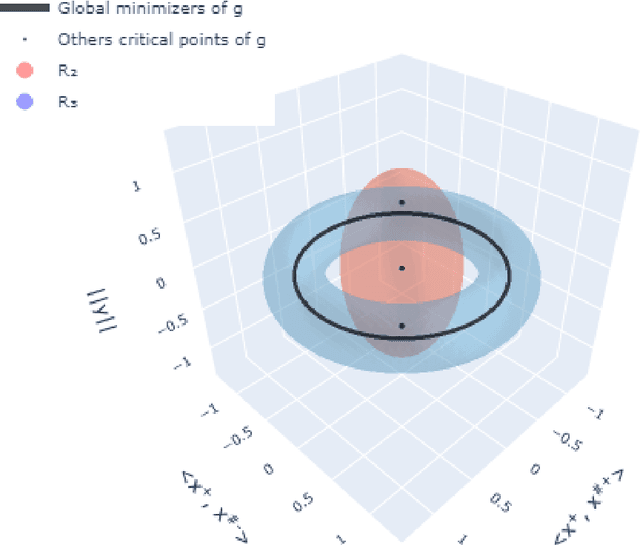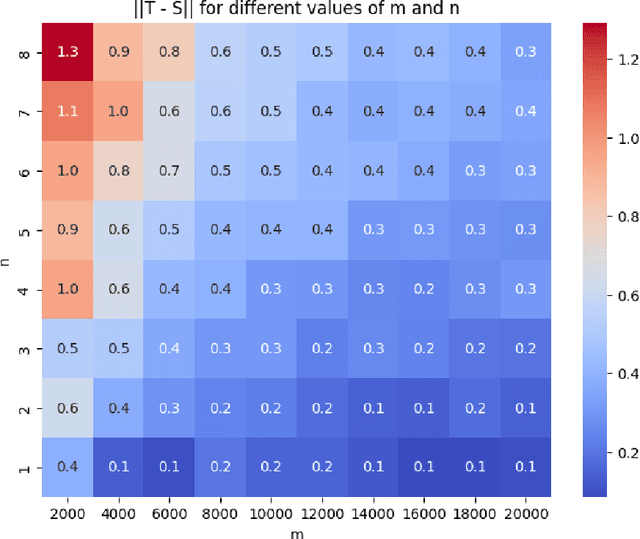Théodore Fougereux
Phase retrieval: Global convergence of gradient descent with optimal sample complexity
Oct 13, 2024



Abstract:This paper addresses the phase retrieval problem, which aims to recover a signal vector $x$ from $m$ measurements $y_i=|\langle a_i,x^{\natural}\rangle|^2$, $i=1,\ldots,m$. A standard approach is to solve a nonconvex least squares problem using gradient descent with random initialization, which is known to work efficiently given a sufficient number of measurements. However, whether $O(n)$ measurements suffice for gradient descent to recover the ground truth efficiently has remained an open question. Prior work has established that $O(n\,{\rm poly}(\log n))$ measurements are sufficient. In this paper, we resolve this open problem by proving that $m=O(n)$ Gaussian random measurements are sufficient to guarantee, with high probability, that the objective function has a benign global landscape. This sample complexity is optimal because at least $\Omega(n)$ measurements are required for exact recovery. The landscape result allows us to further show that gradient descent with a constant step size converges to the ground truth from almost any initial point.
 Add to Chrome
Add to Chrome Add to Firefox
Add to Firefox Add to Edge
Add to Edge